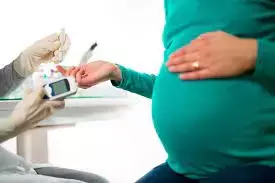- Home
- Medical news & Guidelines
- Anesthesiology
- Cardiology and CTVS
- Critical Care
- Dentistry
- Dermatology
- Diabetes and Endocrinology
- ENT
- Gastroenterology
- Medicine
- Nephrology
- Neurology
- Obstretics-Gynaecology
- Oncology
- Ophthalmology
- Orthopaedics
- Pediatrics-Neonatology
- Psychiatry
- Pulmonology
- Radiology
- Surgery
- Urology
- Laboratory Medicine
- Diet
- Nursing
- Paramedical
- Physiotherapy
- Health news
- Fact Check
- Bone Health Fact Check
- Brain Health Fact Check
- Cancer Related Fact Check
- Child Care Fact Check
- Dental and oral health fact check
- Diabetes and metabolic health fact check
- Diet and Nutrition Fact Check
- Eye and ENT Care Fact Check
- Fitness fact check
- Gut health fact check
- Heart health fact check
- Kidney health fact check
- Medical education fact check
- Men's health fact check
- Respiratory fact check
- Skin and hair care fact check
- Vaccine and Immunization fact check
- Women's health fact check
- AYUSH
- State News
- Andaman and Nicobar Islands
- Andhra Pradesh
- Arunachal Pradesh
- Assam
- Bihar
- Chandigarh
- Chattisgarh
- Dadra and Nagar Haveli
- Daman and Diu
- Delhi
- Goa
- Gujarat
- Haryana
- Himachal Pradesh
- Jammu & Kashmir
- Jharkhand
- Karnataka
- Kerala
- Ladakh
- Lakshadweep
- Madhya Pradesh
- Maharashtra
- Manipur
- Meghalaya
- Mizoram
- Nagaland
- Odisha
- Puducherry
- Punjab
- Rajasthan
- Sikkim
- Tamil Nadu
- Telangana
- Tripura
- Uttar Pradesh
- Uttrakhand
- West Bengal
- Medical Education
- Industry
Only less than one fourth women with gestational diabetes receive type 2 diabetes screening: Study

Only less than one fourth women with gestational diabetes receive type 2 diabetes screening, according to a latest study published in the Primary Care Diabetes.
A study was conducted to estimate rates and identify determinants of post-partum glucose screening attendance in women with a history of gestational diabetes mellitus (GDM).
Retrospective cohort study using the Clinical Practice Research Datalink linked to Hospital Episode Statistics, to identify women diagnosed with GDM between 01/01/2000 and 05/11/2018. Age adjusted odds ratios (aOR) and 95% confidence intervals (CI) were estimated using multivariable logistic regression models.
The Results of the study are:
- In 10,868 women with GDM, with an average follow-up of 5.38 years (95% CI 5.31,5.45), there was an average of 3.79 (95% CI 3.70,3.89) screening episodes per individual, with a mean time to first screening test of 1.22 (95% CI 1.18, 1.25) years.
- South Asian women had a significantly greater likelihood of being screened compared to White women within the first 5 years post-partum, aOR: 1.89 95% CI (1.20,2.98).
- A low proportion of women received at least one test per year of follow-up (23.87%).
- Older age at GDM diagnosis, polycystic ovary syndrome, prescribed medication for GDM, and living in England, were all associated with a greater likelihood of being screened.
Thus, while the majority of women with previous GDM receive at least one glucose screening test within the first 5 years post-partum, fewer than a quarter of them receive on average one test per year of follow-up. Developing strategies to motivate more women to attend screening in primary care is essential.
Reference:
Screening for type 2 diabetes after a diagnosis of gestational diabetes by ethnicity: A retrospective cohort study by Elpida Vounzoulaki et al. published in the Primary Care Diabetes.
DOI: 10.1016/j.pcd.2022.03.008
Keywords:
Screening, type 2 diabetes, diagnosis, gestational diabetes, ethnicity, Elpida Vounzoulaki, Kamlesh Khunti, Joanne K Miksza, Bee K Tan, Melanie J Davies, Clare L Gillies, Primary Care Diabetes, Gestational diabetes mellitus; Primary health care; Screening; Type 2 diabetes mellitus; United Kingdom
Dr. Shravani Dali has completed her BDS from Pravara institute of medical sciences, loni. Following which she extensively worked in the healthcare sector for 2+ years. She has been actively involved in writing blogs in field of health and wellness. Currently she is pursuing her Masters of public health-health administration from Tata institute of social sciences. She can be contacted at editorial@medicaldialogues.in.
Dr Kamal Kant Kohli-MBBS, DTCD- a chest specialist with more than 30 years of practice and a flair for writing clinical articles, Dr Kamal Kant Kohli joined Medical Dialogues as a Chief Editor of Medical News. Besides writing articles, as an editor, he proofreads and verifies all the medical content published on Medical Dialogues including those coming from journals, studies,medical conferences,guidelines etc. Email: drkohli@medicaldialogues.in. Contact no. 011-43720751


